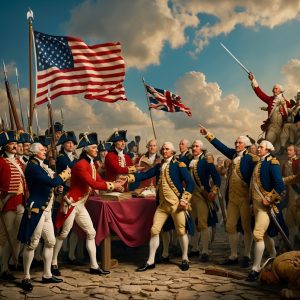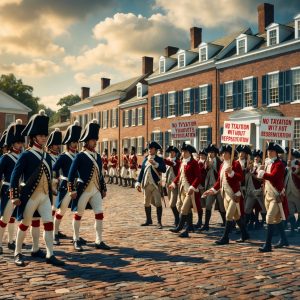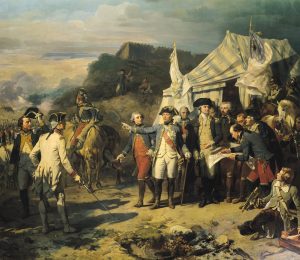The American Revolution, a period between 1775 and 1783, wasn’t just a war for independence from British rule—it was the foundation for what the United States would become. But how did this monumental event unfold? Why did the American colonies, which had long been under British control, decide to break away? And most importantly, how did this revolution change not only the colonies but the world?
The story of the American Revolution is filled with struggles, victories, and ideas that are still relevant today. In this blog post, we’ll explore how it began, what motivated the colonists, and how the revolution changed the course of history.
The Seeds of Revolution
The causes of the American Revolution didn’t spring up overnight. It all began with a series of British policies that increasingly frustrated the American colonies. One of the most important things to remember is that the colonies had become used to a certain degree of freedom. However, after the French and Indian War, Britain started imposing new taxes, such as the infamous Stamp Act and Tea Act, to pay off war debts.
At first glance, taxes may not seem like a big deal. After all, governments need money, right? But to the colonists, it wasn’t just about money. It was about representation. The phrase “no taxation without representation” became the rallying cry. The colonists believed that because they had no representatives in the British Parliament, they shouldn’t have to pay these taxes.

Tensions only grew as the British continued to tighten their grip. Soon, things began to escalate, with events like the Boston Massacre in 1770 and the Boston Tea Party in 1773. These incidents only further convinced the colonists that their freedom was being taken away.
War Breaks Out
In 1775, everything came to a head. The first shots of the American Revolution were fired at the battles of Lexington and Concord. This was the beginning of a conflict that would last eight long years. Initially, the colonial forces were disorganized and not nearly as strong as the British army, but they had one big advantage: passion. The colonists were fighting for their homes and their rights, which made them a determined and relentless force.
One of the most famous figures during this time was George Washington, who led the colonial army. While the war was long and hard, with plenty of defeats along the way, the colonists’ determination never wavered. By 1777, the tide began to turn in favor of the American colonies, especially after the Battle of Saratoga, which convinced France to join the war as an ally to the American cause.

Victory and the Birth of a New Nation
Finally, in 1781, the colonial forces achieved a decisive victory at the Battle of Yorktown, where British General Cornwallis surrendered to the Americans and their French allies. Although it would take another two years for Britain to officially recognize American independence with the Treaty of Paris in 1783, the war was effectively over.
The revolution wasn’t just about military victories. It also gave rise to revolutionary ideas about government and society. The United States was founded on the principle that power should come from the people, not a distant king. This was a radical idea at the time and it influenced political movements worldwide. The ideals of liberty, equality, and democracy that emerged from the American Revolution would go on to shape the future of the nation—and inspire countless other revolutions across the globe.

The American Revolution’s Legacy
The American Revolution wasn’t just a moment in history; it was the birth of a new way of thinking. The Declaration of Independence, written by Thomas Jefferson, declared that all men are created equal and have the right to life, liberty, and the pursuit of happiness. These ideas became the core of the American identity.
After the revolution, the United States faced new challenges in building a nation. But the revolution set the stage for the creation of the U.S. Constitution, which established the democratic system we live under today.
In conclusion, the American Revolution was more than just a war—it was a political and social movement that transformed the world. It laid the groundwork for the freedoms we often take for granted today. Without the bravery and determination of those early revolutionaries, the United States might look very different.

The American Revolution remains a powerful reminder that change is possible, even when it seems impossible. It’s a testament to the fact that a group of people, united by a common goal, can truly change the course of history.
